Dunning–Kruger effect
description: cognitive bias in which incompetent people tend to assess themselves as skilled
26 results
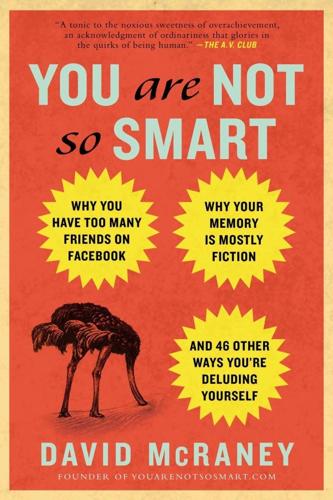
You Are Not So Smart
by
David McRaney
Published 20 Sep 2011
Yet the time it takes to go from novice to amateur feels rapid, and that’s where the Dunning-Kruger effect strikes. You think the same amount of practice will move you from amateur to expert, but it won’t. Everyone experiences the Dunning-Kruger effect from time to time. Being honest with yourself and recognizing all your faults and weaknesses is not a pleasant way to live. Feeling inadequate or incompetent is paralyzing—you have to plow through those emotions to get out of bed. Seen along a spectrum, Dunning-Kruger is on the opposite end from depression with its crippling insecurity. Don’t let the Dunning-Kruger effect cast its shadow over you. If you want to be great at something, you have to practice, and then you have to sample the work of people who have been doing it for their whole lives.
…
Table of Contents Title Page Copyright Page Dedication Introduction Chapter 1 - Priming Chapter 2 - Confabulation Chapter 3 - Confirmation Bias Chapter 4 - Hindsight Bias Chapter 5 - The Texas Sharpshooter Fallacy Chapter 6 - Procrastination Chapter 7 - Normalcy Bias Chapter 8 - Introspection Chapter 9 - The Availability Heuristic Chapter 10 - The Bystander Effect Chapter 11 - The Dunning-Kruger Effect Chapter 12 - Apophenia Chapter 13 - Brand Loyalty Chapter 14 - The Argument from Authority Chapter 15 - The Argument from Ignorance Chapter 16 - The Straw Man Fallacy Chapter 17 - The Ad Hominem Fallacy Chapter 18 - The Just-World Fallacy Chapter 19 - The Public Goods Game Chapter 20 - The Ultimatum Game Chapter 21 - Subjective Validation Chapter 22 - Cult Indoctrination Chapter 23 - Groupthink Chapter 24 - Supernormal Releasers Chapter 25 - The Affect Heuristic Chapter 26 - Dunbar’s Number Chapter 27 - Selling Out Chapter 28 - Self-Serving Bias Chapter 29 - The Spotlight Effect Chapter 30 - The Third Person Effect Chapter 31 - Catharsis Chapter 32 - The Misinformation Effect Chapter 33 - Conformity Chapter 34 - Extinction Burst Chapter 35 - Social Loafing Chapter 36 - The Illusion of Transparency Chapter 37 - Learned Helplessness Chapter 38 - Embodied Cognition Chapter 39 - The Anchoring Effect Chapter 40 - Attention Chapter 41 - Self-Handicapping Chapter 42 - Self-Fulfilling Prophecies Chapter 43 - The Moment Chapter 44 - Consistency Bias Chapter 45 - The Representativeness Heuristic Chapter 46 - Expectation Chapter 47 - The Illusion of Control Chapter 48 - The Fundamental Attribution Error Acknowledgements BIBLIOGRAPHY DUTTON Published by Penguin Group (USA) Inc. 375 Hudson Street, New York, New York 10014, U.S.A.
…
So the takeaway here is to remember you are not so smart when it comes to helping people. In a crowded room, or a public street, you can expect people to freeze up and look around at one another. Knowing that, you should always be the first person to break away from the pack and offer help—or attempt escape—because you can be certain no one else will. 11 The Dunning-Kruger Effect THE MISCONCEPTION: You can predict how well you would perform in any situation. THE TRUTH: You are generally pretty bad at estimating your competence and the difficulty of complex tasks. Imagine you are very good at a particular game. Pick anything—chess, Street Fighter, poker—doesn’t matter.
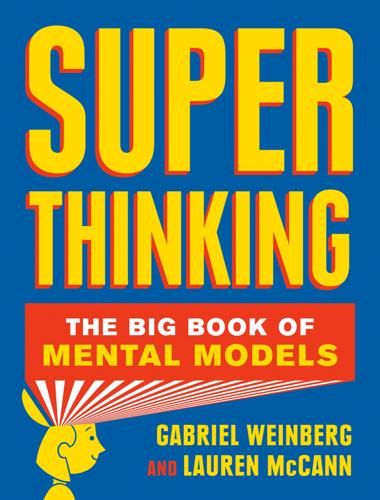
Super Thinking: The Big Book of Mental Models
by
Gabriel Weinberg
and
Lauren McCann
Published 17 Jun 2019
As a coach, you should keep in mind the Dunning-Kruger effect and be aware of where your team members are along the curve. When you are working with people who have less expertise, help them properly recognize their level of abilities so they don’t become overconfident, but at the same time praise their learning progression so they don’t become discouraged. It’s a balancing act. As they get closer to the middle of the curve, they will need more and more encouragement as their confidence plummets. And don’t forget to also keep the model in mind when you are learning a skill yourself. While the Dunning-Kruger effect explains what happens psychologically across the whole learning curve, it is often used to refer to just the first spike, i.e., the phenomenon where low-ability people think they are high-ability, unable to recognize their own skill level (or lack thereof) in a particular area.
…
First is impostor syndrome, in which someone is plagued with the feeling that they are an impostor, fearing being exposed as a fraud, even though in reality they are not. Surveys indicate that 70 percent of people become inflicted with impostor syndrome at some point in their careers. Have you? Dunning-Kruger Effect When people fall victim to impostor syndrome, they dismiss their successes as luck or deception and focus on their failures or fear of failure. This constant focus on failure can lead to high stress and anxiety, and negative behaviors like overexertion, perfectionism, aggression, or defeatism.
…
Explain that small failures are expected when you are operating out of your comfort zone. This explanation can help people recharacterize mistakes as learning opportunities. Connect them with other peers or mentors who have faced impostor syndrome. A second model to consider is the Dunning-Kruger effect, named after social psychologists David Dunning and Justin Kruger. This model describes the confidence people experience over time as they move from being a novice to being an expert. You usually make a lot of progress when you start out learning something, because there is so much new to learn.
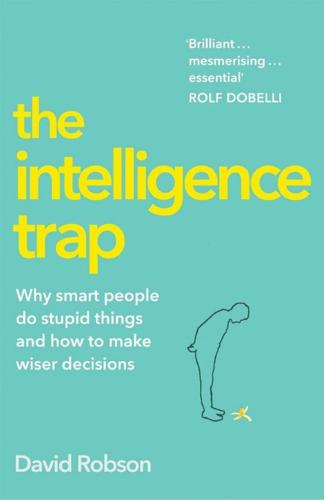
The Intelligence Trap: Revolutionise Your Thinking and Make Wiser Decisions
by
David Robson
Published 7 Mar 2019
Not only did the participants get better at what they did; their increased knowledge also helped them to understand their limitations.7 Since Dunning and Kruger first published their study in 1999, the finding has been replicated many times, across many different cultures.8 One survey of thirty-four countries – from Australia to Germany, and Brazil to South Korea – examined the maths skills of fifteen-year-old students; once again, the least able were often the most over-confident.9 Unsurprisingly, the press have been quick to embrace the ‘Dunning?Kruger Effect’, declaring that it is the reason why ‘losers have delusions of grandeur’ and ‘why incompetents think they are awesome’ and citing it as the cause of President Donald Trump’s more egotistical statements.10 The Dunning-Kruger Effect should have an upside, though. Although it may be alarming when someone who is highly incompetent but confident reaches a position of power, it does at least reassure us that education and training work as we would hope, improving not just our knowledge but our metacognition and self-awareness.
…
Lee, C. (2016), ‘Revisiting Why Incompetents Think They Are Awesome’, Ars Technica, 4 November 2016, https://arstechnica.com/science/2016/11/revisiting-why-incompetents-think-theyre-awesome/. Flam, F. (2017), ‘Trump’s “Dangerous Disability”? The Dunning?Kruger Effect’, Bloomberg, 12 May 2017, https://www.bloomberg.com/view/articles/2017-05-12/trump-s-dangerous-disability-it-s-the-dunning-kruger-effect. 11 Fisher, M. and Keil, F.C. (2016), ‘The Curse of Expertise: When More Knowledge Leads to Miscalibrated Explanatory Insight’, Cognitive Science, 40(5), 1251?69. 12 Son, L.K. and Kornell, N. (2010), ‘The Virtues of Ignorance’, Behavioural Processes, 83(2), 207?
…
The legal system, for instance, is notoriously plagued by bias – and in response to this research, the American Judges Association has now issued a white paper that advocated mindfulness as one of the key strategies to improve judicial decision making, while also advising each judge to take a moment to ‘read the dials’ and interrogate their feelings in detail, just as neuroscientists and psychologists such as Feldman Barrett are suggesting.50 Ultimately, these findings could change our understanding of what it means to be an expert. In the past, psychologists had described four distinct stages in the learning curve. The complete beginner is unconsciously incompetent – she does not even know what she doesn’t know (potentially leading to the over-confidence of the Dunning?Kruger effect we saw in Chapter 3). After a short while, however, she will understand the skills she lacks, and what she must do to learn them; she is consciously incompetent. With effort, she can eventually become consciously competent – she can solve most problems, but she has to think a lot about the decisions she is making.
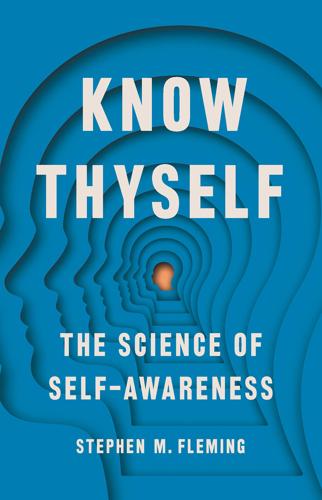
Know Thyself
by
Stephen M Fleming
Published 27 Apr 2021
Cross (1977); Alicke et al. (1995). In a phenomenon known as the Dunning-Kruger effect, after its discoverers, overconfidence biases are most pronounced in those who perform poorly (Dunning, 2012; Kruger and Dunning, 1999). Kruger and Dunning propose that low performers suffer from a metacognitive error and not a bias in responding (Ehrlinger et al., 2008). However, it is still not clear whether the Dunning-Kruger effect is due to a difference in metacognitive sensitivity, bias, or a mixture of both. See Tal Yarkoni, “What the Dunning-Kruger Effect Is and Isn’t,” [citation needed] (blog), July 7, 2010, https://talyarkoni.org/blog/2010/07/07/what-the-dunning-kruger-effect-is-and-isnt; and Simons (2013). 10.
…
See Tal Yarkoni, “What the Dunning-Kruger Effect Is and Isn’t,” [citation needed] (blog), July 7, 2010, https://talyarkoni.org/blog/2010/07/07/what-the-dunning-kruger-effect-is-and-isnt; and Simons (2013). 10. Ais et al. (2016); Song et al. (2011). 11. Mirels, Greblo, and Dean (2002); Rouault, Seow, Gillan, and Fleming (2018); Hoven et al. (2019). 12. Fleming et al. (2014); Rouault, Seow, Gillan, and Fleming (2018); Woolgar, Parr, and Cusack (2010); Roca et al. (2011); Toplak, West, and Stanovich (2011); but see Lemaitre et al. (2018). 13. Fleming et al. (2015); Siedlecka, Paulewicz, and Wierzchoń (2016); Pereira et al. (2020); Gajdos et al. (2019). 14. Logan and Crump (2010). 15. Charles, King, and Dehaene (2014); Nieuwenhuis et al. (2001); Ullsperger et al. (2010). 16.
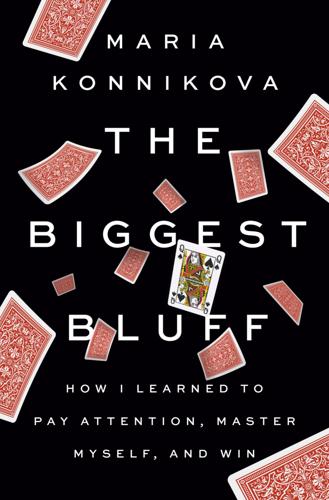
The Biggest Bluff: How I Learned to Pay Attention, Master Myself, and Win
by
Maria Konnikova
Published 22 Jun 2020
Otherwise, you’re left with the illusion of knowledge—knowledge without substance. You’re an armchair philosopher who thinks that just because she read an article about something she is a sudden expert. (David Dunning, a psychologist at the University of Michigan most famous for being one half of the Dunning-Kruger effect—the more incompetent you are, the less you’re aware of your incompetence—has found that people go quickly from being circumspect beginners, who are perfectly aware of their limitations, to “unconscious incompetents,” people who no longer realize how much they don’t know and instead fancy themselves quite proficient
…
I should know how much this smells of overconfidence—after all, that’s what I studied. This is my actual area of expertise. I’m practically dripping with irrational exuberance. The data don’t even back me up: I have it, right there, in hard black-on-white Excel. I’ve been losing money. But here’s where something of the Dunning-Kruger effect creeps in. Yes, that one. The one that shows that the less competent you are in an area, the more likely you are to overestimate your degree of competence. That the less you know about a topic, the more you think you know—as long as you know just enough to start feeling a bit fluent in its vocabulary.
…
See also game theory betting bet size, 73, 79–80, 84–86 and chess, 46 continuation bets (C bets), 285 and poker contrasted with other games, 36 prop betting, 176–84 side bets, 46 and uncertainty, 38 See also all-in bets (shoving); blinds; raising; three-betting Beveridge, William, 148 Beyond Tells project, 212 biases awareness and vulnerability, 241–43, 270 Dunning-Kruger effect, 242–43 hindsight bias, 238 and hot hand hypothesis, 106–9 and self-assessment, 266 status quo bias, 239 and stereotypes and thin-slice judgments, 197, 200 See also gender issues and misogyny in poker Big Five personality traits, 45, 218–19 “big swinging dicks,” 165, 169 Binion’s, 125 Bird by Bird (Lamott), 275 Black Friday, 70 blackjack, 195 blinds author’s first Main Event play, 246–47 and author’s WSOP play, 3 and basics of Texas Hold’em, 53 and charity events, 98–99 defined, 327 and famous Seidel showdown, 83 and fundamentals of poker, 25 and key skills of poker, 36 “M” metric, 56–57 and turbo games, 162–63 See also position blocker cards, 54–55, 145–46, 153, 158, 196, 201 Bluff Europe, 290 bluffing and attentiveness at the table, 145–46 author’s first live play, 104–5 and blocker cards, 146 bluff-catcher hands, 225 and CAPS model of behavior, 220 and charity events, 111 and donkey space, 224–25 and famous Seidel showdown, 83–86 France on, 195 and gender issues in poker, 71–72 and key skills of poker, 36–37 and nonverbal cues, 214 and online play, 80 and physical cues, 209 and reading players, 195 and Seidel’s style of play, 58 and stereotypes and thin-slice judgments, 198–99 and structure of No-Limit Texas Hold’em, 23–24 and thin-slice judgments, 200–201 and turbo games, 163 and WSOP Main Event, 248–50 board cards, 327 board coverage, 54 board texture, 78–79, 274 Boeree, Liv, 97 Bohr, Niels, 298 Bonomo, Justin, 138 Boston Celtics, 107 Boyd, John, 223–24 brain physiology, 254 breaks from play, 276–77, 280–81 brinkmanship, 24 Brunson, Doyle, 185–86, 303 Buddhism, 322–23 budgeting, 124–25, 232–34 Bulgakov, Mikhail, 142 Buonanno, Antonio, 304 button position, 299, 328 buy-in amounts and author’s first Vegas play, 125–26 and author’s first Vegas win, 166–67 and author’s poker schedule, 122–23 “bullets” term, 235, 243, 328 defined, 330 and freezeouts, 329 and fundamentals of poker, 25 and goal of poker project, 114–15, 126–27 mid-stake games, 37 and Monte Carlo events, 176, 186, 190 and World Series of Poker events, 3, 229–30, 232–33, 234, 235, 245, 313 See also high-rollers Caesars Palace, 119, 122 caffeine, 86–87, 268–70, 282 calling and attentiveness at the table, 144–45 and career negotiations, 93 defined, 328 and famous Seidel showdown, 83–86 and game theory optimal (GTO) strategies, 145 and key skills of poker, 36–37 and nonverbal cues, 213 VPIP metric, 168 Capone, Al, 178 capped ranges, 153 Cardano, Girolamo, 42–44 career development, 17, 26, 101–2, 317–18 Caro, Mike, 66, 225–26 cash games, 25, 26 “cashing” in poker games and author’s progress as player, 235–36, 242–43, 314 cash rates, 189–92 defined, 328 and terms of coaching agreement, 52 and World Series of Poker, 235, 247–48 See also min cashing Casino de Monte-Carlo, 173–75 Cates, Dan (“Jungleman”), 186–88 CBD tablets, 269 certainty and uncertainty, 15, 45, 65–66, 146–47, 321–24.
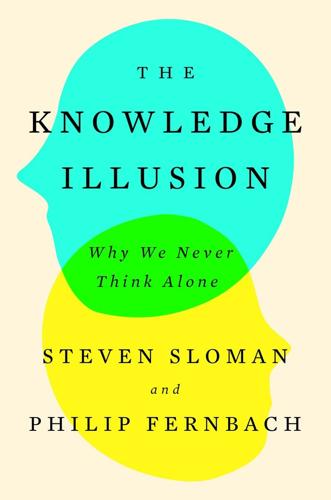
The Knowledge Illusion
by
Steven Sloman
Published 10 Feb 2017
Ray Dalio quote: Interview with Fareed Zakaria, April 27, 2015. CONCLUSION: APPRAISING IGNORANCE AND ILLUSION ignorance documentation: D. Dunning (2011). “The Dunning-Kruger Effect: On Being Ignorant of One’s Own Ignorance.” Ed. J. M. Olson and M. P. Zanna, Advances in Experimental Social Psychology 44: 247–296. “We’re not very good”: David Dunning in interview with Errol Morris, New York Times Opinionator, June 20, 2010. Dunning-Kruger effect: J. Kruger and D. Dunning (1999). “Unskilled and Unaware of It: How Difficulties in Recognizing One’s Own Incompetence Lead to Inflated Self-Assessments.”
…
If you’re relatively accident free, then you might think you’re a pretty darn good driver because you’re unaware that some people can also drive in the city, in emergency situations in all kinds of weather, in mud, on ice, and even on the beach. Relative to people with such broad experience driving, your skills may be quite limited. Expertise means that you have skills as well as knowledge about what constitutes being skilled. Ignorance means you have neither. This pairing explains what is commonly known as the Dunning-Kruger effect, that those who perform the worst overrate their own skills the most. The effect is found by giving a group of people a task to do and then asking them how well they think they’ve done on the task. Poor performers overestimate how well they’ve done; strong performers often underestimate their performance.
…
See chaos theory consequences vs. values arguments, 182–87 contribution of individuals example of group thinking, 122 Copernicus, Nicolaus, 198–99 counterfactual thought, 64–65 Galileo’s experiments with dropping different weights, 65–66 imagining scenarios to figure out likely outcomes, 66 crowdsourcing expertise, 146–50 ox’s weight example, 148 Pallokerho-35 Finnish soccer club example, 148 prediction market, 149 user ratings, 148 crows ability to reason diagnostically, 62 CRT (Cognitive Reflection Test), 80–84 bat and ball problem, 81 lily pad problem, 81–82 machines and widgets problem, 82 crystallized intelligence, 202 cult communities, 260 cultural values and cognition, 160–63 reconciling conflicting beliefs, 161–62 “Science Mike” (Mike McHargue), 160–62 cumulative culture, 117–18 curse of knowledge, 128, 244 curving bullets example of physics, 69–70 Dalio, Ray, 253 Damasio, Antonio, 103 decentralized collaborative activity, 149–50 Bitcoin, 150 block chain technology, 150 Ethereum, 150 decision-making, 103–05, 240, 241, 248–49, 250–53 deficit model of science attitudes, 157–60 Dehghani, Morteza, 185–86 Descartes, René, 87 de Soto, Hernando, 244–45 DeVito, Danny, 45–46 Dewey, John, 216 diagnostic reasoning, 58–62 crow example, 62 lethargy example, 59–61 diSessa, Andrea, 71 disgust, feelings of, 104–05 division of cognitive labor, 14, 109–11, 120–21, 128–29 area of expertise example, 120 car analogy example, 207–08 in the field of science, 222–23 household finances, 247 wine expert example, 120 dogs Cassie example, 49–50 Pavlovian conditioning, 50–51 doorway example of optic flow, 99–100 driving ability example of ignorance, 257–58 Dunbar, Robin, 113 Dunning, David, 257–58 Dunning-Kruger effect, 258 Eastwood, Clint, 172 economics of science, 227–28 education application of classroom learning, 216–17 becoming a car mechanic example, 219–20 expressing desire to learn that which is unknown, 221 financial issues, 240–41 history of Spain example, 220 Ignorance course, 221 illusion of comprehension, 217–18 just-in-time, 251–52 learning to accept what you don’t know, 220–21 mathematical abilities of Brazilian children, 215–16 peer, 230–31 purpose of, 219–21 teaching science, 222, 225–32 Einstein, Albert, 199 embodied intelligence, 91–93 embodiment, 102 emotional responses that influence decision-making, 103–05, 240 engagement as a human concept, 117 environment, knowledge of your personal, 94–96 Ethereum, 150 expertise and crowdsourcing, 146–50 in scientific matters, 226–27 to understand community issues, 188–89 explanation foes and fiends, 237–39 advertising, 239–40, 241–42 Band-Aids example, 237–38 skin care example, 239–40 vesting service letter example, 243–44 explorers’ self-confidence, 263 eyesight.
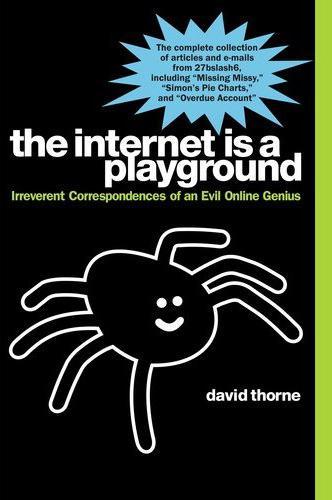
The Internet Is a Playground
by
David Thorne
Published 24 Mar 2010
Remember to cut inside of the line to ensure the right size. Step 6 Insert the packet into the hole you have just cut until the bevel is flush with the picture. Step 7 And there you are. Your homemade fine art scanning device is complete. Scott Dunning-Kruger effect poster boy When not appearing as poster boy for the Dunning-Kruger effect, Scott divides his time between eating and “writing” on his beige blog, attempting to prove to the world that everything I write is fake. From: Scott Redmond Date: Friday 17 September 2010 2:11 p.m. To: David Thorne Subject: Fake Davey Davey Davey.
…
Kilda Swamp Shannon asks a favor after denying me petty cash Hello, my name is Lucius, and I am a straight man Love letters from Dick, Rove’s biggest fan Life-size Lucius™ free cutout doll Guns, baseball caps, and pickup trucks: 3 weeks in the USA Belly messages pretending to be a girl on the Internet Mr. Carganovsky extreme stuntman to the max Mr. Carganovsky’s lawyer writes a letter That Tuesday and why I was not at work Hello, my name is Jason, and I own a MacBook Pro Write me a speech and don’t be a dickhead about it Dear Jason a guide to fine art scanning Scott Dunning-Kruger effect poster boy Hello, my name is John, and I ride a bicycle Hello, my name is Josh, and I live in New Zealand Bees are attracted to yellow—it is a scientific fact Barnesyfan67 online dating profile Lesley the adventurous, outdoors type JEREMY P. TARCHER/PENGUIN Published by the Penguin Group Penguin Group (USA) Inc., 375 Hudson Street, New York, New York 10014, USA Penguin Group (Canada), 90 Eglinton Avenue East, Suite 700, Toronto, Ontario M4P 2Y3, Canada (a division of Pearson Penguin Canada Inc.)
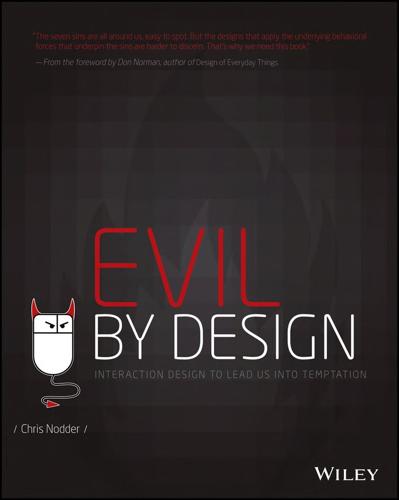
Evil by Design: Interaction Design to Lead Us Into Temptation
by
Chris Nodder
Published 4 Jun 2013
This behavior—unskilled individuals suffering from illusive superiority, whereas skilled individuals suffer from illusive inferiority—is now known as the Dunning-Kruger effect. Dunning and Kruger’s studies used tests of logical reasoning, grammar, and humor, but the same effect holds across other domains, at least for a Western audience. There are several online activities that are open to anyone to participate in, but which require some serious skills to actually succeed at. One of the most obvious areas is online financial trading. Although it’s probably true that you could observe the Dunning-Kruger effect in action with simple stock trading sites, the most fun occurs on sites that broker trades in the derivatives market: options and futures.
…
By warping or removing our capacity to use these reference points of what’s rationally correct, companies can set new anchor points for us that make us think it’s OK to do things we’d otherwise consider spiteful or selfish. Another way that people are separated from reality is in terms of the level of mastery they feel. Counterintuitively, as the Dunning-Kruger effect demonstrates, it takes at least a degree of skill to know that you aren’t very skillful. Without understanding their true level of skill, people can easily get drawn in to working with systems they do not truly understand. It’s easy for companies to convince us that we can win by downplaying luck and emphasizing the skill and mastery we already think we have, even when we don’t.
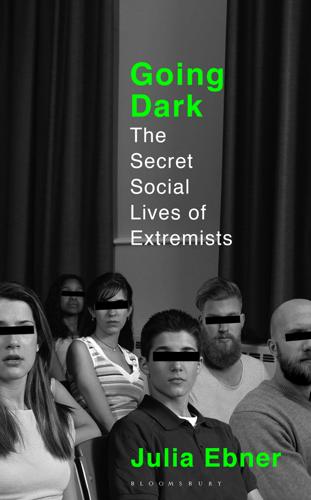
Going Dark: The Secret Social Lives of Extremists
by
Julia Ebner
Published 20 Feb 2020
The same study found that individuals who think that bin Laden was already dead when US special forces raided his Abbottabad compound in 2011 are also more likely to believe that he is still alive.26 These individuals possess what psychologists call a ‘conspiracy mentality’: if you believe in one conspiracy theory, you are also more likely to believe in other conspiracy theories, even if they contradict one another.27 People with fewer years of education are more likely to believe in conspiracy theories. If you know very little about a subject, you are more likely to have high confidence in your knowledge and judgement. This is known as the Dunning–Kruger Effect, or ‘Mount Stupid’.28 (Il)logical deductions can of course go on and on and on, rendering conspiracy theories bottomless: there are even conspiracy theories about conspiracy theories. To the Swiss-German historian Daniele Ganser the term ‘conspiracy theorist’ is a ‘political battle cry’ invented by the CIA – an unlikely scenario considering that Austrian-born philosopher Karl Popper used the term in 1940, seven years before the CIA was created.29 On 8chan, users can post questions to Q, as if approaching an oracle:30 What is the big secret in Antarctica?
…
Sutton, ‘Dead and alive: Belief in contradictory conspiracy theories’, Social Psychology and Personality Science 3, 2012, pp. 767–73. 27S. Moscovici, ‘The conspiracy mentality’, in C. F. Graumann and S. Moscovici (eds), Changing Conceptions of Conspiracy (New York: Springer, 1987), pp. 151–69. 28David Dunning, ‘Chapter Five: The Dunning–Kruger Effect: On Being Ignorant of One’s Own Ignorance’, Advances in Experimental Social Psychology 44, 2011, pp. 247–96. Available at https://www.sciencedirect.com/science/article/pii/B9780123855220000056. 29See https://twitter.com/danieleganser/status/824953776280854528?lang=en. 30See https://8ch.net//qresearch//res/4279775.html#4280231. 31See https://www.qanon.pub. 32Kyle Feldscher, ‘QAnon-believing “conspiracy analyst” meets Trump in the White House’, CNN, 25 August 2018.
…
M. here, here b4bo here bin Laden, Osama here, here, here birthrates here, here Bissonnette, Alexandre here, here BitChute here bitcoin here, here, here Blissett, Luther here Bloc Identitaire here blockchain technology here bloggers here Blood & Honour here Bloom, Mia here Bloomberg, Michael here Böhmermann, Jan here Bowers, Robert here Breed Them Out here Breitbart here, here, here Breivik, Anders Behring here, here ‘Brentonettes’ here Brewer, Emmett here Brexit here, here Britain First here British National Party (BNP) here, here, here Broken Heart operation here Brown, Dan here Bubba Media here Bumble here, here Bundestag hack here, here BuzzFeed here C Star here, here ‘Call of Duty’ here, here Cambridge Analytica here, here Camus, Renaud here Carroll, Lewis here CBS here Channel programme here Charleston church shooting here Charlie Hebdo here Charlottesville rally here, here, here, here, here, here, here, here, here Chemnitz protests here, here Choudary, Anjem here Christchurch terror attacks here, here, here, here Christian identity here Chua, Amy here CIA here, here, here Clinton, Bill and Hillary here, here, here, here, here, here, here Cohn, Norman here Collett, Mark here Cologne rape crisis here Combat here, here Comey, James here Comvo here concentration camps here Conrad, Klaus here Conservative Political Action Conference here Constitution for the Ethno-State here Corem, Yochai here counter-extremism legislation here counter-trolling here Covington, Harold here Crash Override Network here Crusius, Patrick here cryptocurrencies here, here, here, here Cuevas, Joshua here Cyberbit here Cyborgology blog here ‘Daily Shoah’ podcast here Daily Stormer here, here, here, here, here, here, here, here, here Weev and here Damore, James here Dark Net here Data and Society Research Institute here Davey, Jacob here Dawkins, Richard here, here De La Rosa, Veronique here de Turris, Gianfranco here Dearden, Lizzie here deep fakes here, here DefCon here, here Der Spiegel here Deutsche Bahn here Diana, Princess of Wales here, here Die Linke here Die Rechte here ‘digital dualism’ here digital education here disinformation here, here, here Disney here Domestic Discipline here, here Donovan, Joan here Doomsday preppers here doubling here Dox Squad here, here doxxing here, here, here, here, here Doyle, Laura here, here Draugiem here DTube here Dugin, Alexander here Dunning–Kruger Effect here Dutch Leaks here Dylan, Bob here Earnest, John here 8chan here, here, here, here, here, here, here, here EKRE (Estonian fascist party) here El Paso shooting here Element AI here Emanuel, Rahm here encryption and steganography here Encyclopedia Dramatica here English Defence League here, here, here, here Enoch, Mike here environmentalism here, here ethno-pluralism here, here ‘Eurabia’ here, here ‘European Israel’ here European National here European Parliament elections here European Spring here Evola, Julius here executions here Facebook friends here fashions and lifestyles here, here Fawcett, Farah here Faye, Guillaume here FBI here, here, here, here, here Fearless Democracy here, here FedEx here Feldman, Matthew here Ferdinand II, King of Aragon here Fiamengo, Janice here Fields, James Alex here Fight Club here Finkelstein, Robert here Finsbury Mosque attack here, here, here Fisher, Robert here Foley, James here Follin, Marcus here football hooligans here, here Football Lads Alliance (FLA) here For Britain party here Fortnite here 4chan here, here, here, here, here, here, here, here, here FPÖ (Austrian Freedom Party) here, here, here, here, here Frankfurt School here Fransen, Jayda here Fraternal Order of Alt-Knights here Freedom Fighters, The here freedom of speech here, here, here, here F-Secure here FSN TV here Gab here, here, here, here, here, here Gamergate controversy here GamerGate Veterans here gamification here, here, here, here, here, here, here, here Ganser, Daniele here Gates of Vienna here Gateway Pundit here Gawker here GCHQ here GE here GellerReport here Generation Identity (GI) here, here, here, here, here, here, here, here Generation Islam here genetic testing here, here German elections here, here German Institute on Radicalization and De-Radicalization Studies here German National Cyber Defence Centre here Gervais, Ricky here Ghost Security here Giesea, Jeff here Gigih Rahmat Dewa here Gionet, Tim here gladiators here Global Cabal of the New World Order here global financial crisis here, here global warming here GNAA here Goatse Security here GOBBLES here Goebbels, Joseph here GoFundMe here Goldy, Faith here Goodhart, David here ‘Google’s Ideological Echo Chamber’ here Gorbachev, Mikhail here Graham, Senator Lindsey here Gratipay here Great Awakening here, here Great Replacement theory here, here, here, here, here ‘Grievance Studies’ here grooming gangs here, here Guardian here, here H., Daniel here Habeck, Robert here HackerOne here hackers and hacking here ‘capture the flag’ operations here, here denial of service operations here ethical hacking here memory-corruption operations here political hacking here ‘qwning’ here SQL injections here techniques here Halle shooting here Hamas here, here Hanks, Tom here Happn here Harris, DeAndre here ‘hashtag stuffing’ here Hate Library here HateAid here, here Hatreon here, here, here Heidegger, Martin here Heise, Thorsten here, here Hensel, Gerald here, here Herzliya International Institute for Counter-Terrorism here Heyer, Heather here, here, here Himmler, Heinrich here Hintsteiner, Edwin here Histiaeus here Hitler, Adolf here, here, here, here, here Mein Kampf here, here Hitler salutes here, here, here, here Hitler Youth here HIV here Hizb ut-Tahrir here, here, here Höcker, Karl-Friedrich here Hofstadter, Richard here Hollywood here Holocaust here Holocaust denial here, here, here, here, here Holy War Hackers Team here Home Office here homophobia here, here, here Hooton Plan here Hoover Dam here Hope Not Hate here, here, here Horgan, John here Horowitz Foundation here Hot or Not here House of Saud here Huda, Noor here human trafficking here, here Hussein, Saddam here, here Hutchins, Marcus here Hyppönen, Mikko here Identity Evropa here, here iFrames here Illuminati here Incels (Involuntary Celibacy) here, here Independent here Inkster, Nigel here Institute for Strategic Dialogue (ISD) here, here, here, here, here, here, here, here Intelius here International Business Times here International Centre for the Study of Radicalisation (ICSR) here International Federation of Journalists here International Holocaust Memorial Day here International Institute for Strategic Studies here Internet Research Agency (IRA) here iPads here iPhones here iProphet here Iranian revolution here Isabella I, Queen of Castile here ISIS here, here, here, here, here, here, here, here, here, here, here, here hackers and here, here, here, here, here Islamophobia here, here, here, here, here, here, here Tommy Robinson and here, here see also Finsbury Mosque attack Israel here, here, here, here, here Israel Defense Forces here, here Jackson, Michael here jahiliyya here Jakarta attacks here Jamaah Ansharud Daulah (JAD) here Japanese anime here Jemaah Islamiyah here Jesus Christ here Jewish numerology here Jews here, here, here, here, here, here, here, here, here see also anti-Semitism; ZOG JFG World here jihadi brides here, here JihadWatch here Jobs, Steve here Johnson, Boris here Jones, Alex here Jones, Ron here Junge Freiheit here Jurgenson, Nathan here JustPasteIt here Kafka, Franz here Kampf der Niebelungen here, here Kapustin, Denis ‘Nikitin’ here Kassam, Raheem here Kellogg’s here Kennedy, John F. here, here Kennedy family here Kessler, Jason here, here Khomeini, Ayataollah here Kim Jong-un here Kohl, Helmut here Köhler, Daniel here Kronen Zeitung here Kronos banking Trojan here Ku Klux Klan here, here Küssel, Gottfried here Lane, David here Le Loop here Le Pen, Marine here LeBretton, Matthew here Lebron, Michael here Lee, Robert E. here Li, Sean here Li family here Libyan Fighting Group here LifeOfWat here Lifton, Robert here Littman, Gisele here live action role play (LARP) here, here, here, here, here, here lobbying here Lokteff, Lana here loneliness here, here, here, here, here, here, here Lorraine, DeAnna here Lügenpresse here McDonald’s here McInnes, Gavin here McMahon, Ed here Macron, Emmanuel here, here, here, here MAGA (Make America Great Again) here ‘mainstream media’ here, here, here ‘Millennium Dawn’ here Manosphere here, here, here March for Life here Maria Theresa statue here, here Marighella, Carlos here Marina Bay Sands Hotel (Singapore) here Marx, Karl here Das Kapital here Masculine Development here Mason, James here MAtR (Men Among the Ruins) here, here Matrix, The here, here, here, here May, Theresa here, here, here Meechan, Mark here Meme Warfare here memes here, here, here, here and terrorist attacks here Men’s Rights Activists (MRA) here Menlo Park here Mercer Family Foundation here Merkel, Angela here, here, here, here MGTOW (Men Going Their Own Way) here, here, here MI6, 158, 164 migration here, here, here, here, here, here, here, here, here see also refugees millenarianism here Millennial Woes here millennials here Minassian, Alek here Mindanao here Minds here, here misogyny here, here, here, here, here see also Incels mixed martial arts (MMA) here, here, here, here Morgan, Nicky here Mounk, Yascha here Movement, The here Mueller, Robert here, here Muhammad, Prophet here, here, here mujahidat here Mulhall, Joe here MuslimCrypt here MuslimTec here, here Mussolini, Benito here Naim, Bahrun here, here Nance, Malcolm here Nasher App here National Action here National Bolshevism here National Democratic Party (NPD) here, here, here, here National Health Service (NHS) here National Policy Institute here, here National Socialism group here National Socialist Movement here National Socialist Underground here NATO DFR Lab here Naturalnews here Nawaz, Maajid here Nazi symbols here, here, here, here, here, here, here see also Hitler salutes; swastikas Nazi women here N-count here Neiwert, David here Nero, Emperor here Netflix here Network Contagion Research Institute here NetzDG legislation here, here Neumann, Peter here New Balance shoes here New York Times here News Corp here Newsnight here Nietzsche, Friedrich here, here Nikolai Alexander, Supreme Commander here, here, here, here, here, here 9/11 attacks here, here ‘nipsters’ here, here No Agenda here Northwest Front (NWF) here, here Nouvelle Droite here, here NPC meme here NSDAP here, here, here Obama, Barack and Michelle here, here, here, here, here Omas gegen Rechts here online harassment, gender and here OpenAI here open-source intelligence (OSINT) here, here Operation Name and Shame here Orbán, Viktor here, here organised crime here Orwell, George here, here Osborne, Darren here, here Oxford Internet Institute here Page, Larry here Panofsky, Aaron here Panorama here Parkland high-school shooting here Patreon here, here, here, here Patriot Peer here, here PayPal here PeopleLookup here Periscope here Peterson, Jordan here Pettibone, Brittany here, here, here Pew Research Center here, here PewDiePie here PewTube here Phillips, Whitney here Photofeeler here Phrack High Council here Pink Floyd here Pipl here Pittsburgh synagogue shooting here Pizzagate here Podesta, John here, here political propaganda here Popper, Karl here populist politicians here pornography here, here Poway synagogue shooting here, here Pozner, Lenny here Presley, Elvis here Prideaux, Sue here Prince Albert Police here Pro Chemnitz here ‘pseudo-conservatives’ here Putin, Vladimir here Q Britannia here QAnon here, here, here, here Quebec mosque shooting here Quilliam Foundation here, here, here Quinn, Zoë here Quran here racist slurs (n-word) here Radio 3Fourteen here Radix Journal here Rafiq, Haras here Ramakrishna, Kumar here RAND Corporation here Rasmussen, Tore here, here, here, here Raymond, Jolynn here Rebel Media here, here, here Reconquista Germanica here, here, here, here, here, here, here Reconquista Internet here Red Pill Women here, here, here, here, here Reddit here, here, here, here, here, here, here, here, here, here redpilling here, here, here, here refugees here, here, here, here, here Relotius, Claas here ‘Remove Kebab’ here Renault here Revolution Chemnitz here Rigby, Lee here Right Wing Terror Center here Right Wing United (RWU) here RMV (Relationship Market Value) here Robertson, Caolan here Robinson, Tommy here, here, here, here, here, here, here, here Rockefeller family here Rodger, Elliot here Roof, Dylann here, here Rosenberg, Alfred here Rothschilds here, here Rowley, Mark here Roy, Donald F. here Royal Family here Russia Today here, here S., Johannes here St Kilda Beach meeting here Salafi Media here Saltman, Erin here Salvini, Matteo here Sampson, Chris here, here Sandy Hook school shooting here Sargon of Akkad, see Benjamin, Carl Schild & Schwert rock festival (Ostritz) here, here, here Schilling, Curt here Schlessinger, Laura C. here Scholz & Friends here SchoolDesk here Schröder, Patrick here Sellner, Martin here, here, here, here, here, here, here, here, here, here Serrano, Francisco here ‘sexual economics’ here SGT Report here Shodan here, here Siege-posting here Sleeping Giants here SMV (Sexual Market Value) here, here, here Social Justice Warriors (SJW) here, here Solahütte here Soros, George here, here Sotloff, Steven here Southern, Lauren here Southfront here Spencer, Richard here, here, here, here, here, here Spiegel TV here spoofing technology here Sputnik here, here SS here, here Stadtwerke Borken here Star Wars here Steinmeier, Frank-Walter here Stewart, Ayla here STFU (Shut the Fuck Up) here Stormfront here, here, here Strache, H.
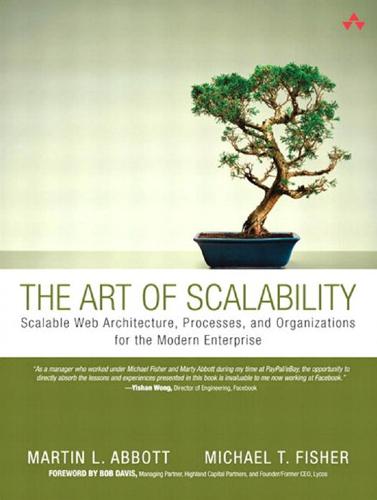
The Art of Scalability: Scalable Web Architecture, Processes, and Organizations for the Modern Enterprise
by
Martin L. Abbott
and
Michael T. Fisher
Published 1 Dec 2009
By being a better leader, you will get more out of your organizations and your organizations will make decisions consistent with your vision and mission. The result is greater scalability, more benefit with less work (or rework), and happier shareholders. Taking Stock of Who You Are Most people are not as good a leader as they think. We make this assertion from our personal experience, and while relying on the Dunning-Kruger effect. Through their studies, David Dunning and Justin Kruger witnessed that we often overestimate our abilities and that the overestimation is most severe where we lack experience or have 67 68 C HAPTER 4 L EADERSHIP 101 a high degree of ignorance.1 With very little formal leadership training available in our universities or workplaces, we believe that leadership ignorance abounds and that as a result, many people overestimate their leadership skills.
…
In their book Resonant Leadership, Richard Boyatzis and Annie McKee discuss the three components necessary for change in individuals as mindfulness, hope, and compassion.2 Mindfulness here is the knowledge of one’s self, including feelings and capabilities, whereas hope and compassion help to generate the vision and drivers for change. Unfortunately, as the Dunning-Kruger effect would argue, you probably aren’t the best person to evaluate where you are today. All of us have a tendency to inflate certain self-perceived strengths and potentially even misdiagnose weaknesses. Elite military units strip a potential leader down to absolutely nothing and force him to know his limits.
…
Designing to be disabled architectural principles, 201 markdown functionality, 282–283 Designing to be monitored, 470–471 Destructive interference communication breakdown, 105–106 in dysfunctional organizations, 212 Detection, incident management, 136–138 Diagnosis, incident management, 138 Dining philosophers problem, 394 Dirty cache data, 381 Disaster recovery, data center planning, 496–497 Distributed object caches, AKF Scale Cube for databases, 360 Documentation, crisis management activities, 154 Dot com bubble, 427 Downtime costs, of scalability failure, 114–117 DRIER (Detect, Report, Investigate, Escalate, Resolve) process, incident management, 138–139, 146–147 Dunning, David, 67 Dunning-Kruger effect, 67–68 Dysfunctional organizations, 211–213 E EBay, crisis management case studies, 152, 505–506 Ecommerce AKF Scale Cube for applications, 350–351 AKF Scale Cube for databases, 370–372 Educating executives, 111–112 Educational mismatch, communication breakdown, 106 I NDEX Efficiency, influences of organizational design, 44 Ego, role in leadership, 71 Elevation, data centers, 486 Employee reviews, leadership, 69 Employees.
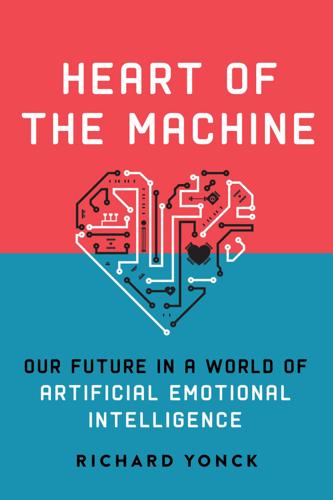
Heart of the Machine: Our Future in a World of Artificial Emotional Intelligence
by
Richard Yonck
Published 7 Mar 2017
Enard W., Przeworski M., Fisher S.E., Lai C.S., Wiebe V., Kitano T., Monaco A.P., Pääbo S. “Molecular evolution of FOXP2, a gene involved in speech and language.” Nature 418, 869–872 (August 22, 2002). 12. Today we refer to such overconfidence as the Dunning-Kruger effect, a form of cognitive bias. https://en.wikipedia.org/wiki/Dunning–Kruger_effect. 13. Christiansen, M.H., Kirby, S. “Language evolution: consensus and controversies.” TRENDS in Cognitive Sciences, Vol.7 No.7. July 2003. 14. Philosophical Transactions of the Royal Society B. “The neural and cognitive correlates of aimed throwing in chimpanzees: a magnetic resonance image and behavioural study on a unique form of social tool use,” January 12, 2012, vol. 367 no. 1585 37–47. 15.
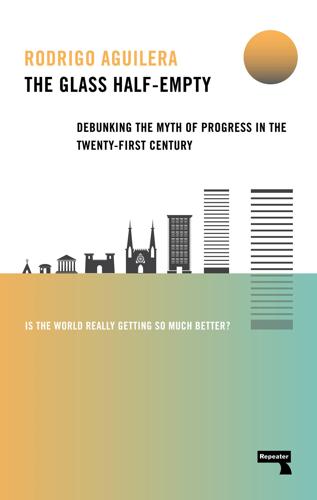
The Glass Half-Empty: Debunking the Myth of Progress in the Twenty-First Century
by
Rodrigo Aguilera
Published 10 Mar 2020
Nearly everyone has encountered at least one colleague who merely by the fact that he (yes, usually a he) behaves like a bigger expert than he is tends to climb the corporate ladder faster. Such behavior has been particularly noted among less competent individuals who tend to be more self-deluded about their own abilities. This phenomenon, known as the Dunning-Kruger Effect,28 basically has it that illusory superiority is strongest among those of lowest competence in whatever activity is being assessed. In contrast, people of moderate competence are more aware of their limitations, while those of high competence both recognize their abilities but also recognize the inherent complexity of the issues which results in them knowing that they don’t know everything.
…
In short, the stupider someone is the more convinced they are that they’re right about everything, an embarrassing spectacle that almost everyone who has been on social media over the past few years has surely encountered on an alarmingly regular basis. And though debating Twitter and Facebook trolls might be frustrating and futile, what’s more worrying is when the Dunning-Kruger Effect is found in environments that actually matter. Like the workplace or in politics, where incompetent but supremely self-assured individuals are perceived to be more authoritative and tend to nab the promotions and get voted into office. The current occupant of 1600 Pennsylvania Avenue (and at time of writing, 10 Downing Street) being by far the best examples.
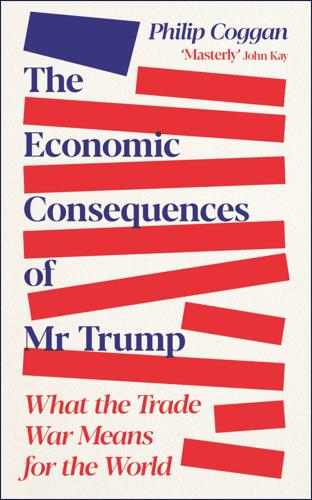
The Economic Consequences of Mr Trump: What the Trade War Means for the World
by
Philip Coggan
Published 1 Jul 2025
The excruciating sight of Cabinet members competing to shower Mr Trump with praise is reminiscent of some tinpot dictatorship, not the world’s most powerful democracy. It is no wonder policymaking is so chaotic. Some Americans yearn for strong leadership but all they have got is the wrong leadership. The Dunning–Kruger effect describes the tendency for people with low competence in a particular field to overestimate their abilities. Mr Trump has no expertise in international trade, and refuses to listen to people who do. He made up his mind about trade in the 1980s and since he thinks he can never be wrong, he is not going to change now.
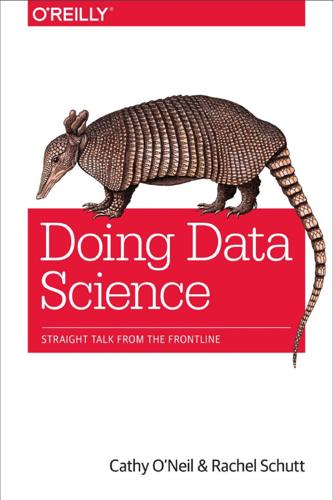
Doing Data Science: Straight Talk From the Frontline
by
Cathy O'Neil
and
Rachel Schutt
Published 8 Oct 2013
But what we probably should focus on, or at least emphasize more strongly, is how students behave when they don’t know the answer. We need to have qualities that help us find the answer. Speaking of this issue, have you ever wondered why people don’t say “I don’t know” when they don’t know something? This is partly explained through an unconscious bias called the Dunning-Kruger effect. Basically, people who are bad at something have no idea that they are bad at it and overestimate their confidence. People who are super good at something underestimate their mastery of it. Actual competence may weaken self-confidence. Keep this in mind and try not to over- or underestimate your abilities—give yourself reality checks by making sure you can code what you speak and by chatting with other data scientists about approaches.
…
directed edges, Kyle Teague and GetGlue discrete derivative operators, A Baby Model distance metrics (k-NN), Similarity or distance metrics–Similarity or distance metrics sensitivity of, Some Problems with Nearest Neighbors distant reading, Franco Moretti distribution, Populations and Samples conditional, Probability distributions Gaussian, Probability distributions joint, Probability distributions named, Probability distributions normal, Probability distributions distributive crowdsourcing, Background: Crowdsourcing domain expertise vs. machine learning algorithms, Thought Experiment: What Are the Ethical Implications of a Robo-Grader? Dorsey, Jack, About Square Driscoll, Mike, The Current Landscape (with a Little History) Duhigg, Charles, A Bit of History on Data Journalism Dunning-Kruger effect, Cultivating Soft Skills dyads, Terminology from Social Networks, A First Example of Random Graphs: The Erdos-Renyi Model E eBay, Recommendation Engines: Building a User-Facing Data Product at Scale, The Dimensionality Problem edges, Kyle Teague and GetGlue, Terminology from Social Networks ego networks, Terminology from Social Networks Egyptian politics thought experiment, Thought Experiment eigenvalue centrality, Representations of Networks and Eigenvalue Centrality social networks and, Representations of Networks and Eigenvalue Centrality electronic health records (EHR), Research Experiment (Observational Medical Outcomes Partnership), Research Experiment (Observational Medical Outcomes Partnership) embedded methods, Example: User Retention engaged users, Challenges in features and learning entropy, Selection criterion conditional, Entropy feature selection and, Entropy specific conditional, Entropy epidemiology, Epidemiology–Closing Thought Experiment academic statistics and, Modern Academic Statistics confounders in, Stratification Does Not Solve the Confounder Problem–What Do People Do About Confounding Things in Practice?
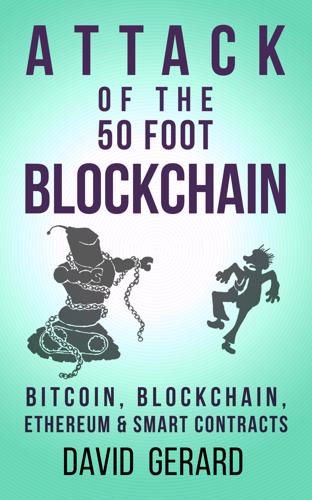
Attack of the 50 Foot Blockchain: Bitcoin, Blockchain, Ethereum & Smart Contracts
by
David Gerard
Published 23 Jul 2017
Attorney’s Office, Southern District of New York (press release), 6 November 2014. [77] Nate Raymond. “Texan gets one-and-a-half years in prison for running bitcoin Ponzi scheme”. Reuters, 21 July 2016. [78] Justin O’Connell. “Lawyer Reveals Details About the Man Behind Bitcoin’s $4.5 Million Ponzi Scheme”. Motherboard, 18 December 2015. [79] Wikipedia: Dunning-Kruger effect. From which another name for bitcoins, “Dunning-Krugerrands.” [80] “Risk of Bitcoin Hacks and Losses Is Very Real”. Reuters, 29 August 2016. [81] Kyt Dotson. “Third Largest Bitcoin Exchange Bitomat Lost Their Wallet, Over 17,000 Bitcoins Missing”. SiliconAngle, 1 August 2011. [82] Coinabul. “10 Questions with Zhou Tong”.
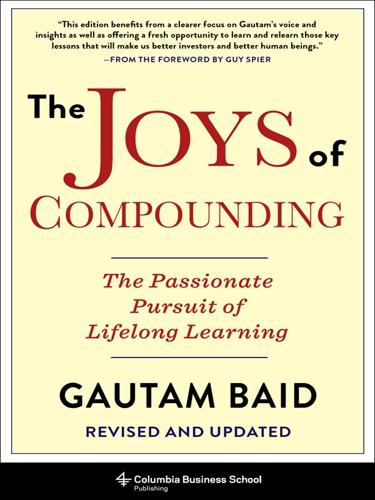
The Joys of Compounding: The Passionate Pursuit of Lifelong Learning, Revised and Updated
by
Gautam Baid
Published 1 Jun 2020
The wiser we become, the more we realize how little we know. A lesser-known (and one of my all-time favorite) equation from Albert Einstein rings true: “Ego = 1 / Knowledge. More the knowledge lesser the ego, lesser the knowledge more the ego.” The deeper one dives into any field, the more humble one generally becomes (also known as the Dunning-Kruger effect). By demonstrating intellectual humility and acknowledging what we don’t know, we place ourselves into a beneficial position to learn more—thus, the dawning of wisdom. True expert knowledge in life and investing does not exist, only varying degrees of ignorance. This is not a problem to solve; it is simply how the world works.
…
Martin on, 244; Munger on, 244; overdiversification, 244; risk and, 117–118; sufficient, 246 diversity, Internet and, 291 dividend pay-outs, Fisher on, 217 dividend reinvestment plan (DRIP), 367 Dobelli, Rolf, 75 dog stock, 337 Dollar, US, total real returns on, 274 do-nothing syndrome, 135 dopamine, 270, 348 Doren, Charles Van, 16–17 Dorsey, Pat, on competitive advantage, 221 do-something syndrome, 137 doubt, 53–54 Dow Jones, 54, 88–89, 105 Dow Jones Industrial Average, 220–221, 273 downside volatility, 276 DRIP. See dividend reinvestment plan Druckenmiller, Stanley, 233 Drucker, Peter, 226; on efficiency, 247 dry powder, 299 due diligence, Buffett on, 174 Duhigg, Charles, 359; on habits, 360 Duke, Annie, 341 Dunning-Kruger effect, 51 DuPont analysis, 221 durability, 163–164 Durant, Ariel, 15 Durant, Will, 15, 42 earnings before interest, taxes, depreciation, and amortization (EBITDA), 162, 191 earnings per share (EPS), 98, 162 Easterlin, Richard, 84 EBITDA. See earnings before interest, taxes, depreciation, and amortization economies of scale, 99 Edge, The, 200 Edison, Thomas, 31, 304 education, 47, 82 Education of a Value Investor, The (Spier), 46 ego, 338–340; Einstein on, 51–52; Fisher on, 339 egotism, on Wall Street, 55 Eicher Motors, 309, 326, 346 Einhorn, David, 244 Einstein, Albert, 35, 36, 70, 155; on compound interest, 2, 349; on curiosity, 325; on ego, 51–52; on knowledge, 51–52; on simplicity, 73 Eisner, Michael, 4–5 elementary reading, 16 Ellis, Albert, 35 Ellis, Charles D., 175 emergency funds, 254–255 emerging markets, Munger on, 301–302 emerging moats, 213 Emerson, Harrington, 19 Emerson, Ralph Waldo, 52, 230 emotional arousal, 137, 275 emotional intelligence, 59, 157–158 empathy, in investment, 184–186 employee cost, 130 Endersen, Laurence, 50, 146 End of Accounting, The (Lev & Gu), 312 enterprise value (EV), 191 envy, 135, 339–340; Buffett on, 338 EPS.
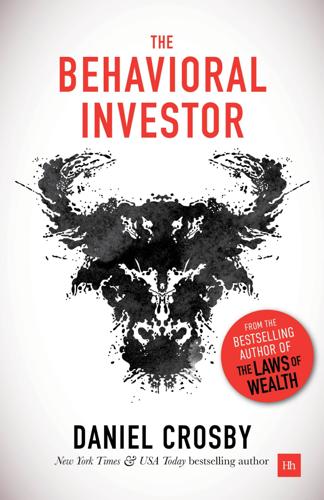
The Behavioral Investor
by
Daniel Crosby
Published 15 Feb 2018
Jason Zweig shares that participants in one ambiguous study reported 68% certainty in their ability to determine whether a drawing had been created by an Asian or European child. Likewise, college students reported 66% certainty that they could name which US states had the highest graduation rates. In both cases, the actual results were at or below chance levels. A related concept, perhaps my favorite in all of psychology, is what is known as the Dunning-Kruger effect. To put their findings indelicately, David Dunning and Justin Kruger of Cornell University found that dumb people are too dumb to know how dumb they are.34 Their inquiry into the subject was inspired by the case of McArthur Wheeler, a bank robber who attempted to disguise his identity by covering his face in lemon juice.
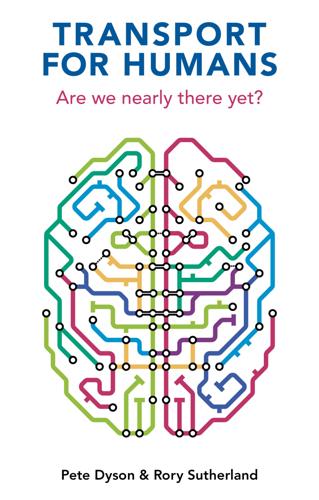
Transport for Humans: Are We Nearly There Yet?
by
Pete Dyson
and
Rory Sutherland
Published 15 Jan 2021
Wherever you are in the world, you will underestimate your chance of getting divorced, being in a car accident or suffering from cancer while overestimating your chance of living a long life or having talented children.3 We are also over-optimistic when it comes to our own abilities, the quality of our plans and our tools for success. Psychologists call this the Dunning–Kruger effect. This is universal and has little to do with intelligence or experience. Consequently, seasoned government officials and politicians are as vulnerable to this effect as anyone else is. One US study tested 600 officials to compare what they thought they knew about climate change and their actual knowledge of it as evaluated in a test.4 Concerningly, the most experienced officials were also the most overconfident, leading them to oppose highly effective risk-reduction policies such as improving agricultural practices to reduce methane levels or protecting coastal settlements from rising sea levels.
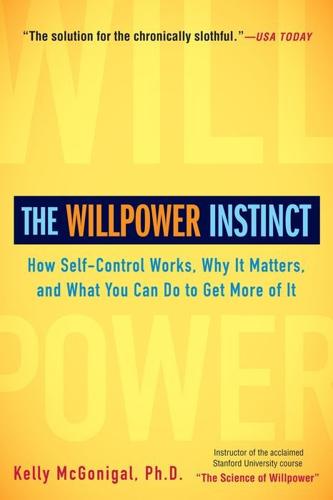
The Willpower Instinct: How Self-Control Works, Why It Matters, and What You Can Doto Get More of It
by
Kelly McGonigal
Published 1 Dec 2011
Willpower Diet Willpower Workout ZZZZZZZZZZ willpower instinct pause-and-plan response Wolfgang Koehler Primate Research Center women, and chocolate Woods, Tiger would-be entrepreneur writer challenges voice of self-criticism Yale University School of Medicine yoga 1 This bias is not unique to willpower—for example, people who think they are the best at multitasking are actually the most distractible. Known as the Dunning-Kruger effect, this phenomenon was first reported by two Cornell University psychologists who found that people overestimate their abilities in all sorts of areas, including sense of humor, grammar, and reasoning skills. The effect is most pronounced among people who have the least skill; for example, those with a test score in the 12th percentile would, on average, estimate themselves to be in the 62nd percentile.
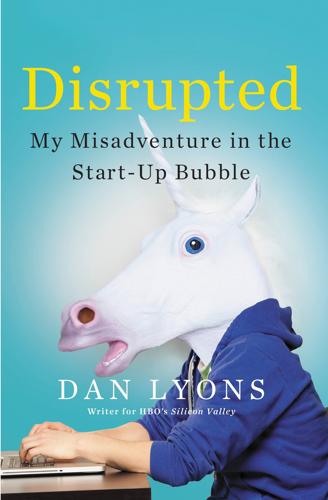
Disrupted: My Misadventure in the Start-Up Bubble
by
Dan Lyons
Published 4 Apr 2016
is an actual question that HubSpot’s twenty-something managers ask job candidates during interviews, according to reviews posted on Glassdoor, a website for job seekers. Also: “What does your desk look like? What would you put on it?” The thing about bozos is that bozos don’t know that they’re bozos. Bozos think they’re the shit, which makes them really annoying but also incredibly entertaining, depending on your point of view. Shrinks call this the Dunning-Kruger effect, named after two researchers from Cornell University whose studies found that incompetent people fail to recognize their own lack of skill, grossly overestimate their abilities, and are unable to recognize talent in other people who actually are competent. Cranium is a classic example. He was one of the first five employees at HubSpot, and in his mind, HubSpot is a huge, important company.
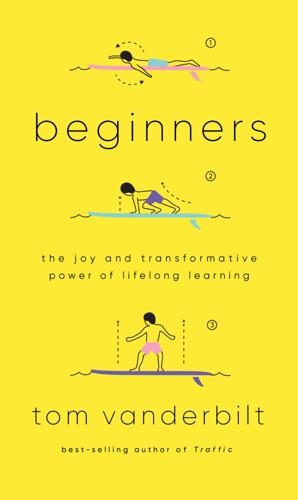
Beginners: The Joy and Transformative Power of Lifelong Learning
by
Tom Vanderbilt
Published 5 Jan 2021
In the clumsily self-conscious early stages of skill learning, it can be hard to remember to take note of your surroundings. But progress will come. Just enjoy the moment; take it all in. THE BEGINNERS’ ADVANTAGE Even as your skills and knowledge progress, there is a potential value to holding on to that beginner’s mind. In what’s come to be known as the Dunning-Kruger effect, the psychologists David Dunning and Justin Kruger famously showed that on various cognitive tests the people who did the worst were also the ones who most “grossly overestimated” their actual performance. They were “unskilled and unaware of it.” This can certainly be a stumbling block for beginners.
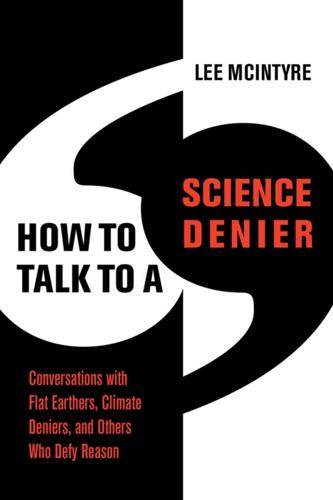
How to Talk to a Science Denier: Conversations With Flat Earthers, Climate Deniers, and Others Who Defy Reason
by
Lee McIntyre
Published 14 Sep 2021
I talked to Cornelia Betsch on the phone, and she was interested in the possibility of working with me to try to set up a future experiment. Notes 1. James H. Kuklinski et al., “Misinformation and the Currency of Democratic Citizenship,” Journal of Politics 62, no. 3 (August 2000), https://www.uvm.edu/~dguber/POLS234/articles/kuklinski.pdf. 2. This is called the Dunning-Kruger effect. I discuss it in Post-Truth, 51–58. 3. A telephone survey is surely not as personal as a face-to-face encounter, but it is more personal than interacting with subjects only online. Kuklinski’s work involved a half-hour phone conversation with each of his participants. That is a long time to be on the phone with someone. 4.
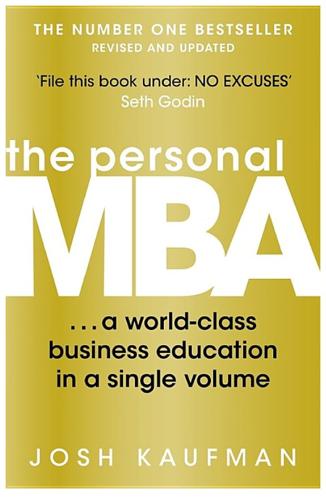
The Personal MBA: A World-Class Business Education in a Single Volume
by
Josh Kaufman
Published 2 Feb 2011
The more a person actually knows, the better their ability to self-assess their capabilities, and the more likely they are to doubt their capabilities until they have enough experience to know they’ve mastered the subject. According to David Dunning and Justin Kruger of Cornell University, Charles Darwin’s famous quip “Ignorance more frequently begets confidence than does knowledge” is literally true. They explain the “Dunning-Kruger effect” as follows:1. Incompetent individuals tend to overestimate their own level of skill. 2. Incompetent individuals fail to recognize genuine skill in others. 3. Incompetent individuals fail to recognize the extremity of their inadequacy. 4. If they can be trained to substantially improve their own skill level, these individuals can recognize and acknowledge their own previous lack of skill.
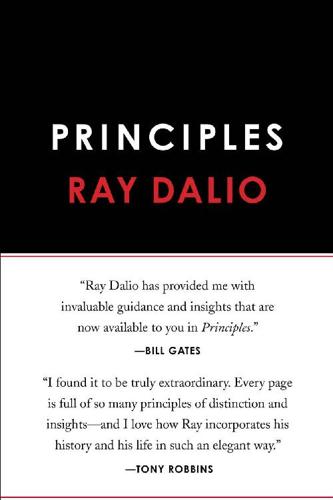
Principles: Life and Work
by
Ray Dalio
Published 18 Sep 2017
; “Are we going to try to convince each other that we are right or are we going to open-mindedly hear each other’s perspectives to try to figure out what’s true and what to do about it?”; or “Are you arguing with me or seeking to understand my perspective?” 27 Psychologist and science journalist Daniel Goleman originally coined this term in Emotional Intelligence. 28 Some of this may be a result of what is called the Dunning-Kruger effect, a cognitive bias in which low-ability individuals believe that they are in fact superior. 4 Understand That People Are Wired Very Differently Because of the different ways that our brains are wired, we all experience reality in different ways and any single way is essentially distorted.

Character Limit: How Elon Musk Destroyed Twitter
by
Kate Conger
and
Ryan Mac
Published 17 Sep 2024
She walked a fine line between pleasing Musk and limiting his potential damage to the website, and often remarked to some of her reports that it was becoming too much. After one meeting in which Musk demanded they once again remove any official designations from individual verified accounts, she told a teammate: “I don’t want the Dunning-Kruger effect to get in the way of good decision-making here.” She and other employees began to understand that Musk’s expertise in other areas didn’t necessarily translate into running or understanding Twitter. At its core, SpaceX was a physics problem. Tesla was a manufacturing challenge. But Twitter was a social and psychological problem.
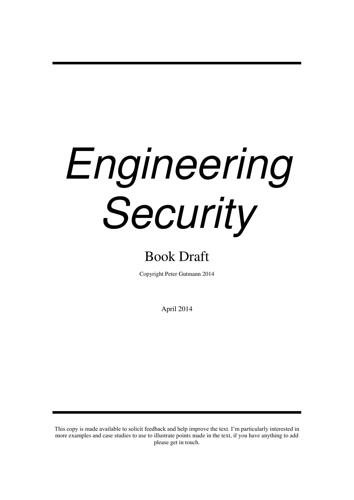
Engineering Security
by
Peter Gutmann
There’s a well-documented phenomenon in psychology in which people have an unrealistically positive opinion of themselves, often totally unsupported by any actual evidence. This phenomenon is sometimes known as the Lake Wobegon effect after US humorist Garrison Keillor’s fictional community of the same name, in which “the women are strong, the men are good-looking, and all the children are above average”, or more formally the Dunning-Kruger effect in which unskilled people, unable to recognise their own lack of skill in an area and therefore to determine whether they’ve performed well or not, make poor decisions based on an overestimation of their own abilities [355], and is something that’s uniformly present across people from all age groups, races, education levels, and socioeconomic statuses [356].